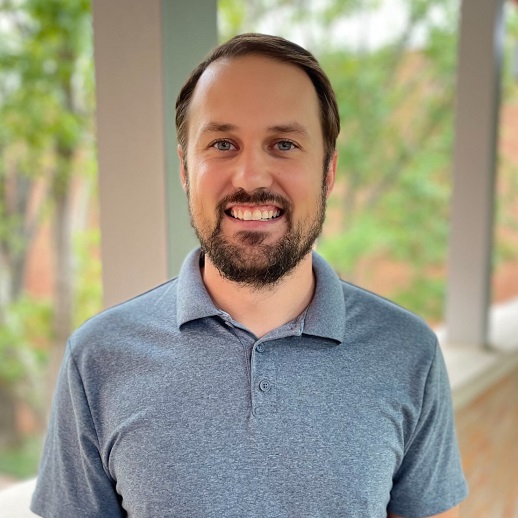David Moss
|
Office: LDB 318 |
||||||||
Courses:
|
||||||||
Research:
|
I grew up in northeastern Oklahoma and did not think “geologist/paleontologist” was something people could do for a living. I had an interest in paleontology and evolution from watching the Discovery Channel but did not see it as a viable career. I spent lots of time fishing in abandoned coal pits and on limestone cliffs as a kid but never realized the significance of either until I took Physical Geology to fulfill a core science requirement as an undergraduate student. It was there, with the help of an outstanding professor I began to see geology as a career opportunity.
Stemming probably from my experiences as an undergraduate, my goal in teaching earth sciences is to change the way students view their surroundings. If students leave earth science classes more aware of their surroundings, then they are more capable of making decisions that will affect society in a positive way. We are currently facing some of the most complex environmental issues in recorded history and their solutions will come from a deep understanding Earth’s rock and fossil record. I hope my students are more curious about the Earth when they leave my classroom than before they entered.
My current research lies at the intersection of paleontology and sclerochronlogy (the study of accretionary hard parts in marine organisms). I am particularly interested in understanding how the so-called ‘pageant of life’ has unfolded throughout Earth’s history. To do this, I examine variations in lifespan and growth rates of modern and fossil bivalves to answer large-scale macroevolutionary questions. Some targeted questions include: environmental and phylogenetic controls on extreme longevity, the role that changes in life history strategy may have played in diversification of bivalves, predator/prey interactions, and how lifespan/growth rate might play a role during mass extinctions. I hope to recruit undergraduate students to help answer these and other questions.
My non-academic interests include fishing, reading, and college sports. My wife Melanie and I have two sons, Rhett and Oliver.

